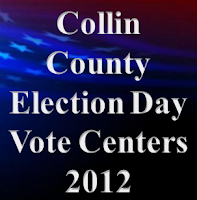 by Michael Handley (Updated Sat., Dec. 1, 2012 @ 9:38 a.m.)
by Michael Handley (Updated Sat., Dec. 1, 2012 @ 9:38 a.m.)The Romney campaign and GOP politicos, like Carl Rove, absolutely believed Romney was headed for victory on Election Day. Did Romney's polls skew toward the right by as much as an eight point spread because his internal pollsters fell into the wireless (cell phone) only polling gap trap?
A few journalists have reported that team Romney’s internal polling showed him comfortably moving into the lead in North Carolina, Florida, Virginia and a few other swing states. Add in Ohio, where Romney's internal polling had him in a statistical tie with Obama, and team Romney thought they were on track to lock in enough electoral votes to win the White House. GOP confidence in these numbers was such that Romney decided to not prepare a concession speech in advance.
An article by Noam Scheiber published today in The New Republic provides some details about the Romney Campaign's internal polling snafu.
The Internal Polls That Made Mitt Romney Think He'd WinWe know polls that included properly weighted cell phone only voters gave Obama the lead in all battle ground states through the summer and fall. In late September Nate Silver wrote that Obama has shown a clear lead in the 16 cell phone-inclusive polls of seven top battleground states taken since the convention. A national survey conducted by Pew Research Center for the People & the Press, in mid September, which include properly weighted cell phone only respondents, found that Obama had an eight-point lead over Mitt Romney among likely voters.
...In an exclusive to The New Republic, a Romney aide has provided the campaign’s final internal polling numbers for six key states, along with additional breakdowns of the data, which the aide obtained from the campaign’s chief pollster, Neil Newhouse. Newhouse himself then discussed the numbers with TNR.
...Newhouse and some of his colleagues have said that the biggest flaw in their polling was the failure to predict the demographic composition of the electorate. Broadly speaking, the people who showed up to vote on November 6 were younger and less white than Team Romney anticipated, and far more Democratic as a result. "The Colorado Latino vote was extraordinarily challenging," Newhouse told me. "As it was in Florida.
...One Romney aide told me that he ran into Tagg Romney, the candidate’s eldest son, as the results came in on election night. “He looked like he was in a complete state of shock,” the aide said. “[As if] these numbers cannot be real.”
Read the full story @ The New Republic.
The cell phone only trend is increasingly problematic for pollsters for several reasons.

















